10 LGBTQ Indigenous trailblazers who are making history
From the halls of Congress to popular films and TV shows, Indigenous queer people have long made historic contributions to politics, art and advocacy — and they continue to do so.
November marks Native American Heritage Month, and the following 10 LGBTQ+ Indigenous trailblazers are bringing important representation to TV, challenging traditional gender expectations at powwows and elevating issues affecting Indigenous people, such as the epidemic of missing and murdered Indigenous women.
Sharice Davids
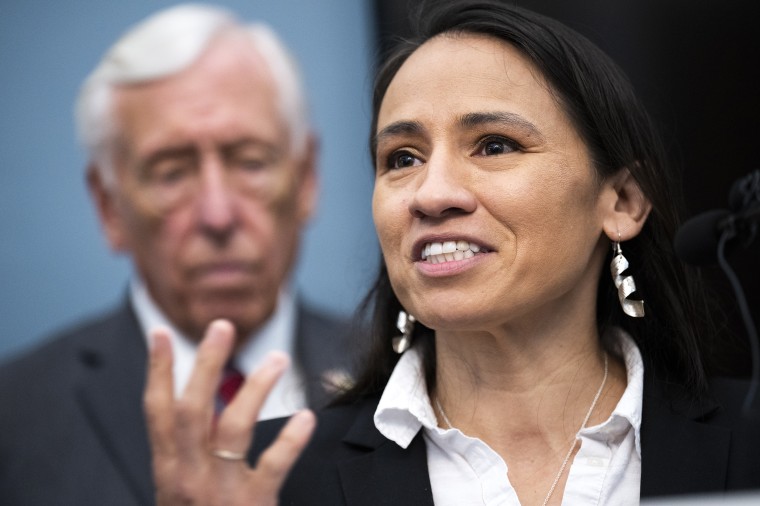
Rep. Sharice Davids, a member of the Ho-Chunk nation, became the first LGBTQ Native American elected to Congress and one of the first Native American women to serve in Congress after winning her race for Kansas’ 3rd Congressional District in 2018. Raised by a single mom who served over two decades in the Army, Davids was also the first person in her family to attend college, according to her House biography. After graduating from Cornell Law School, Davids worked in economic and community development on Native American reservations, which led her to apply for the White House Fellows program, where she served in the Department of Transportation under Presidents Barack Obama and Donald Trump.
Davids won re-election in her district earlier this month.
Sean Snyder and Adrian Stevens
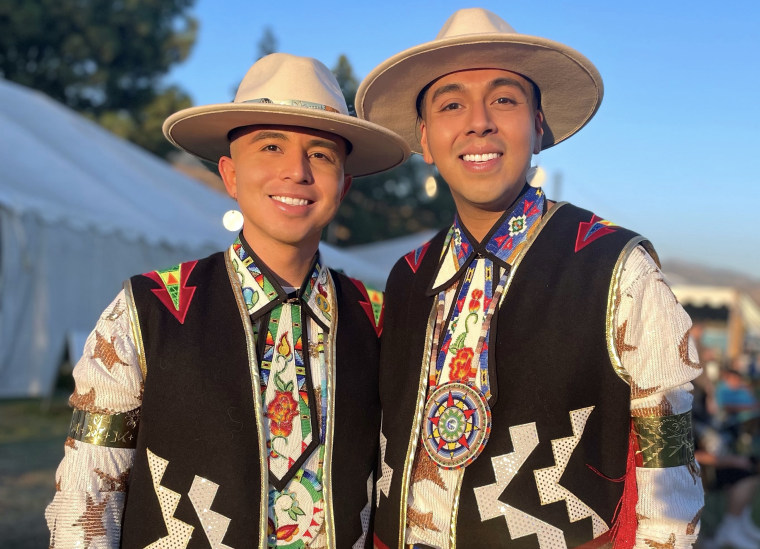
Sean Snyder, who is of Navajo and Southern Ute, and Adrian Matthias Stevens, who is of Northern Ute, Shoshone-Bannock and San Carlos Apache, are a two-spirit dancing couple who challenge traditional boundaries at powwows across the country. Two-spirit people have “both a male and female spirit within them and are blessed by their Creator to see life through the eyes of both genders,” according to Indian Country Today.
In 2017, the couple made headlines after being disqualified for competing together in a couples category at a powwow in San Bernardino, California. While same-sex partners are not regularly recognized at powwows, Stevens and Snyder quickly created their own narrative and have evolved into a vessel of advocacy for the Indigenous 2SLGBTQ+ community, an acronym that includes two-spirit people. In June, the couple was featured in Nike’s Be True Campaign, and in August they recreated OUT magazine’s December 2000 “Queer as Folk” cover.
Sydney Freeland
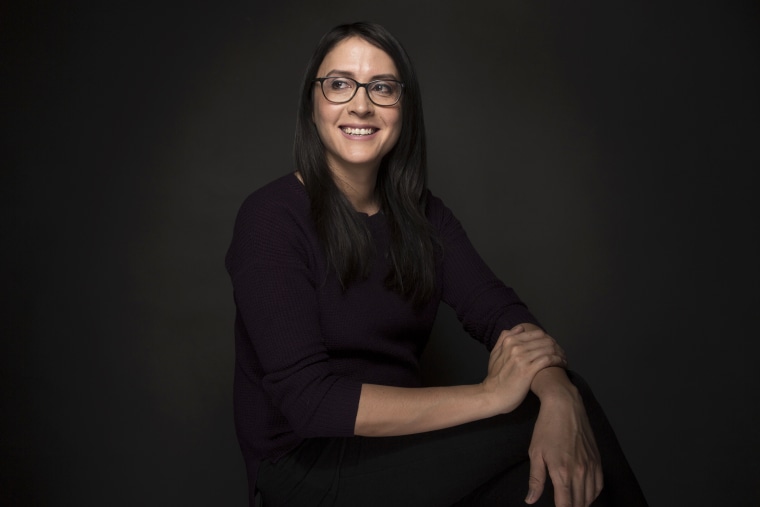
A triple threat in the film world, Emmy-nominated filmmaker, director and writer Sydney Freeland of the Navajo Nation is shining a light on Indigenous life and stories. Freeland, who is transgender, recently broke new ground in Indigenous on-screen representation with the FX drama “Reservation Dogs.” Freeland is currently working on NBC’s “Sovereign” — the first drama on network television about a Native American family — which she will write and executive produce alongside Ava DuVernay and Bird Runningwater. Also on her list of upcoming projects is the Netflix film “Rez Ball,” a coming-of-age drama about Native American basketball.
Kairyn Potts
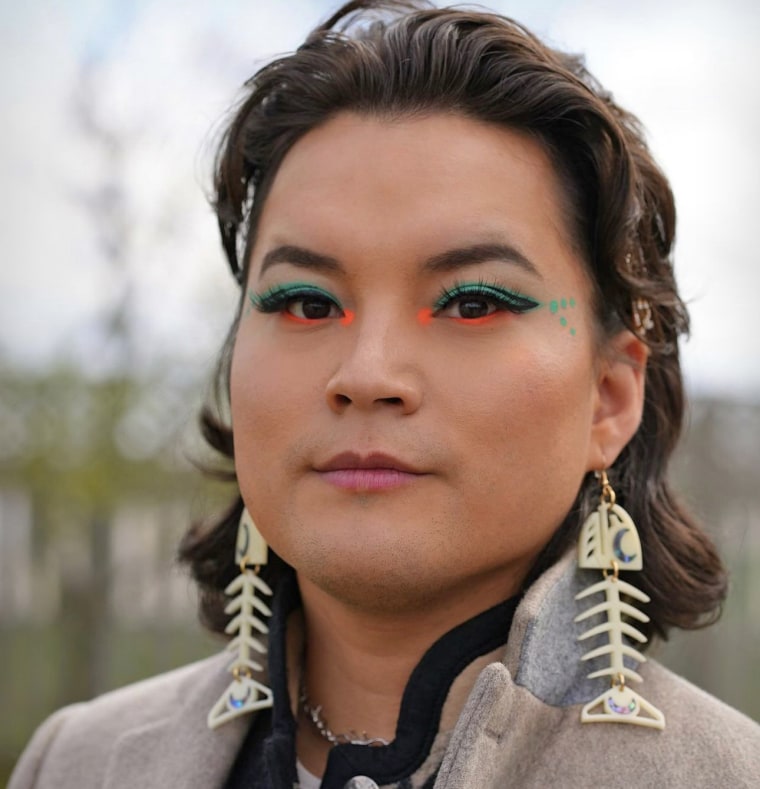
Kairyn Potts of the Alexis Nakota Sioux Nation is a two-spirit social media advocate who hopes to save lives through representation online. He has amassed hundreds of thousands of followers on TikTok, Twitch and Instagram with content centered around Indigenous and two-spirit visibility. Potts also co-hosts the Snapchat series “Reclaim(ed),” the first Canadian Snapchat series that explores Indigenous culture through a Gen-Z perspective.
“I don’t make content for everybody. I make content for people like me, and I make content for the 12-year-old version of me who would have really needed somebody like me, growing up,” Potts said “That’s why I think it’s important.”
https://iframe.nbcnews.com/3SIs8mV?_showcaption=true&app=1
Lady Shug
Ky Victor, who is widely known as drag artist and community activist Lady Shug, is using her drag to spotlight the Indigenous community and the difficult topics that affect it. Shug’s dazzling performances are interlaced with educational information about suicide prevention meant to spark conversation. One topic in particular featured in Shug’s performances is suicide prevention.
The Native youth suicide rate is 2.5 times higher than the overall national average, data from the Trevor Project, a national LGBTQ youth suicide prevention and crisis intervention organization, shows. It is the highest across all ethnic and racial groups, according to the National Indian Council on Aging.
Lady Shug is also featured in Seasons One and Two of the HBO series “We’re Here,” a reality television show that follows drag queens Bob the Drag Queen, Eureka O’Hara and Shangela across small-town America, inspiring their “drag daughters” to express their genuine selves in front of their families, friends and communities.
Get the Morning Rundown
Get a head start on the morning’s top stories.SIGN UPTHIS SITE IS PROTECTED BY RECAPTCHA PRIVACY POLICY | TERMS OF SERVICE
https://iframe.nbcnews.com/BzZy1xe?_showcaption=true&app=1
“I’m trying to find a way with my voice and my platform to give back,” Shug said. “I always say I hate to be called an activist. I like to call myself a community activist because my activism work is not for me, it’s for my community.”
Charlie Amáyá Scott
Navajo Nation citizen Charlie Amáyá Scott, 27, is a transgender social media influencer, scholar and advocate. Scott, of Aurora, Colorado, who uses she and they pronouns, leverages her platform to highlight issues affecting the queer Indigenous community. She is a doctoral candidate at the University of Denver focusing on higher education and settler colonialism.
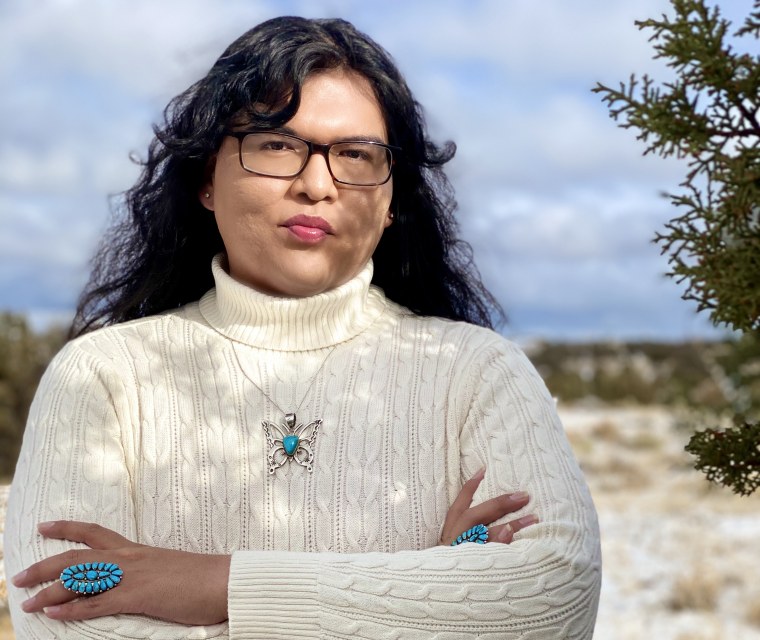
“Native Heritage Month is more than just a month of awareness,” she said. “This a time of celebration, a time of remembrance, and for us, as Queer Indigenous Peoples, a moment to dream and demand a world better than what we have. We are more than what this world thinks of us, and together, we will change narratives about us and write our own.”
Scott Wabano
Scott Wabano, who is Cree from Eeyou Istchee and Mushkegowuk, fell in love with fashion at a young age, designing his own traditional regalia for powwows and traditional ceremonies. Wabano, who is two-spirit, said the lack of Indigenous representation in fashion magazines pushed him to create a space for his community.
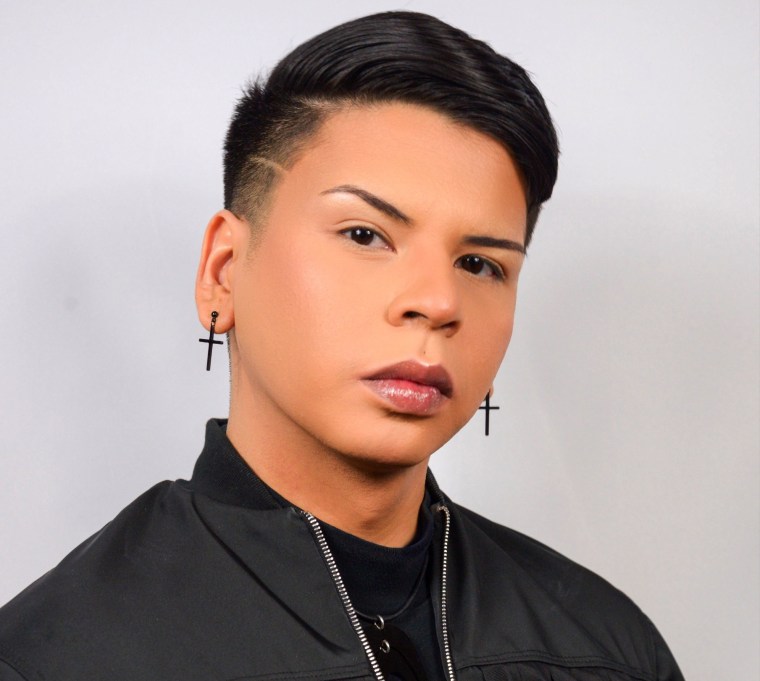
In May 2021, Wabano launched his genderless clothing label, Wabano, inspired by two-spirit surroundings and traditional culture. His talent and drive landed him two major lead roles with Sephora and Lululemon for their National Indigenous History Month campaigns. In 2022, Wabano was featured on The Globe and Mail’s annual Canada’s Best Dressed List, which highlights eco-friendly fashion trendsetters.
“My goal is to eventually be the first Indigenous creative director of a major fashion house,” Wabano said. “I just want to flood the industry with Indigenous people, Indigenous models, Indigenous stories, and Indigenous designers.”
Kali Reis (KO)
Kali Reis, who is Seaconke Wampanaak and Cape Verdean, is a trailblazing Indigenous two-spirit athlete who wears many hats. She is a world champion boxer, actor and advocate. In February, she made her acting debut in the award-winning IFC Films thriller “Catch the Fair One.” In addition to starring in the film, Reis co-wrote the screenplay, which is in part about the epidemic of missing and murdered Indigenous women — a topic she actively advocates for on her social media.
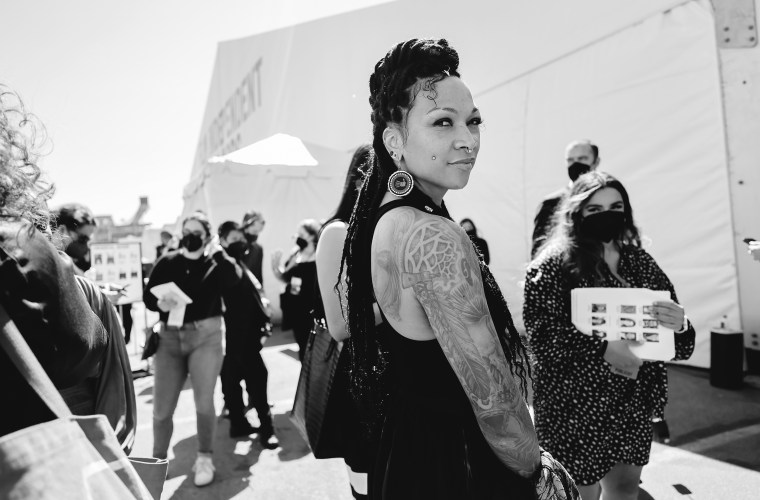
On Monday, Reis was honored for her performance in the film at the 27th Red Nations International Film Festival, the largest Native film festival in the country, with the Misty Upham Award.
Devery Jacobs
Kawennáhere Devery Jacobs, known professionally as Devery Jacobs, is an award-winning Indigenous actor and filmmaker born and raised in Kahnawake Mohawk Territory, a reservation in Quebec, Canada.
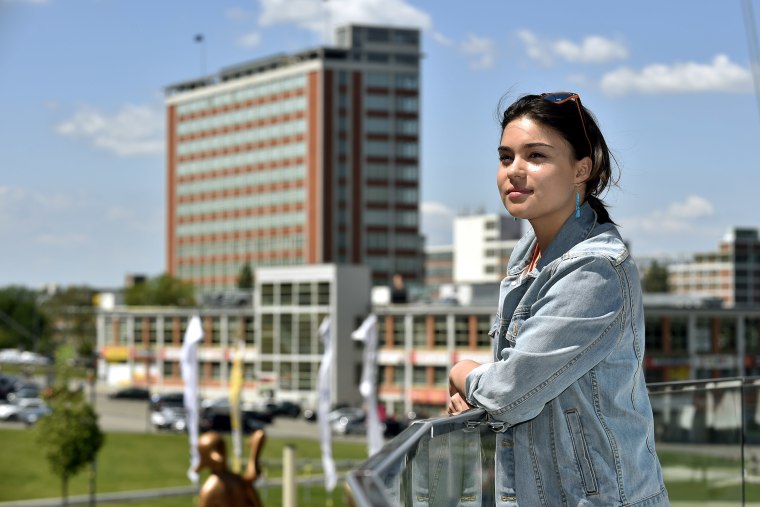
Jacobs, 28, is best known for her starring role as Elora in the FX series “Reservation Dogs.” Her short film “Rae” was an official selection of the Palm Springs International Festival of Short Films, and it won best youth work at the 2017 imagineNATIVE Film and Media Arts Festival.
Recommended

OUT POLITICS AND POLICYA Texas mom and her teen son made a life changing decision after attacks on trans care

GUNS IN AMERICAColorado Springs suspect identifies as nonbinary and uses they/them pronouns, defense lawyer says
“Indigenous people are the original caretakers and storytellers of this land,” she said. “We come from diverse communities and cultures who have persevered and survived genocide, who deserve to be cherished and celebrated. Native American Heritage Month invites non-Native folks in joining us in recognizing our histories and celebrating our communities. Representation in film does meaningful work in bringing our stories to the forefront — where we’ve been historically excluded.”
If you or someone you know is in crisis, call 988 to reach the Suicide and Crisis Lifeline. You can also call the network, previously known as the National Suicide Prevention Lifeline, at 800-273-8255, text HOME to 741741 or visit SpeakingOfSuicide.com/resources for additional resources.